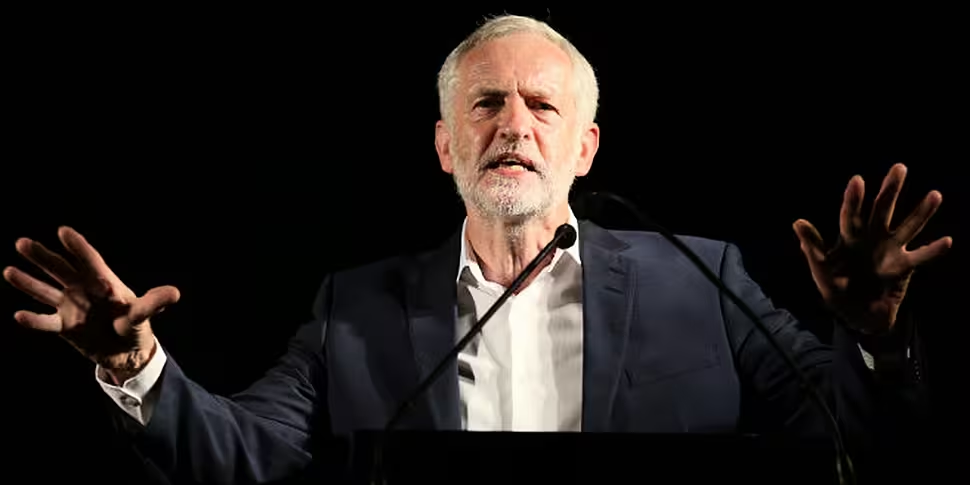On 12th September 2015, Jeremy Corbyn was announced as the new leader of the British Labour party, following his landslide victory in a leadership election.
With more than 59% of first-preference votes - second-placed Andy Burnham only secured 19% - it was a decisive win for Mr Corbyn, having initially being seen as an outsider in the race (an outsider despite having served as an MP since 1983, making him one of the 30 most senior parliamentarians in the UK).
More than anything, though, Corbyn's election marked a rejection of the 'New Labour' initiative kickstarted by Tony Blair - a more 'centered' approach which temporarily led the party to massive electoral success in the 1990s and early 2000s.
However, the Conservative victories in both 2010 and 2015 appeared to illustrate that Labour had again lost touch with the electorate.
With Corbyn, Labour gained a new leader with huge grassroots support, union endorsements and a long history of activism. It was a case of workers very much reclaiming a workers' party.
Much to the shock of the Labour establishment - and indeed the British media, with even left-leaning mainstream outlets often accused of 'bias' against Corbyn - the party again had a truly liberal, left-wing leader, vocally opposed to inequality and injustice in society.
In his victory speech last year, Corbyn said: "Let us be a force for change in the world, a force for humanity in the world, a force for peace in the world and a force that recognises we cannot go on like this with grotesque levels of global insecurity, grotesque threats to our environment all around the world without the rich and powerful governments stepping up to the plate to make sure our world becomes safer and better."
A year has now passed, and you will find no shortage of opinions on Corbyn's successes or lack thereof as head of the party.
"The impermeable rock"
In April, Liam Young, writing in the New Statesman, described Corbyn as "one of history's great opposition leaders", citing in particular his successful efforts to defend families and the working class against various Conservative tax proposals.
According to The Guardian, Labour membership has soared to "the highest number in modern history" under Corbyn's leadership, with more than 500,000 members - which included an increase of around 100,000 in the weeks after the Brexit referendum.
Corbyn himself argued: "Our priority must now be to mobilise this astonishing new force in politics, and ensure people in Britain have a real political alternative."
However, a poll released today also suggests "the worst opinion poll ratings [Labour] has ever experienced in opposition". If Corbyn has helped win back more grassroots support for the party, he has also helped alienate many moderates.
As Jane Merrick argues in The Telegraph: "It is Corbyn who is the impermeable rock, utterly unchanged by events in the world around him. It is a quality that his die-hard fans admire in him most but is one that will be disastrous for Labour’s electoral chances."
Nobody can deny Corbyn has also failed to win the support of the vast majority of his parliamentary colleagues. In June's no confidence motion, 172 Labour MPs voted against their leader - compared to only 40 supporting him.
This is in stark contrast with his continued support from Labour members. A majority of opinion polls have shown Corbyn enjoying a solid lead over his rival Owen Smith in the ongoing leadership election, suggesting the party's current leader is likely to retain his position.
Some have suggested that the deep divisions in the party could eventually lead to a split - a potential catastrophe for the party in a time of great political uncertainty in the UK.
Much has been written about Jeremy Corbyn's role in the Brexit campaign, with critics accusing him of disinterest in campaigning. Others suggested it showed a party out of touch with its traditional demographics - despite Labour supporting a Remain vote, many traditionally Labour areas voted to Leave.
Of course, there have been the usual controversies faced by any political leader - ranging from him having to deal with an 'antisemitism' row in the party to the truly bizarre dispute with Virgin Trains.
Few would argue that Jeremy Corbyn is far from your average political leader in 2016. His distinctive manner and policies have endeared him to many, but made him political enemy number one for others (even his own MPs).
He has unarguably shaken the foundations of British politics - but whether or not he can successfully lead Labour back into power is a question we'll have to wait a long time to find out.
It's going to be an interesting few years.









